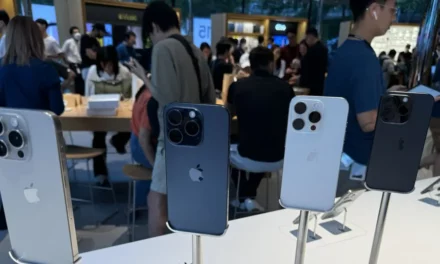It may have been launched under the radar, but Huawei’s new Mate 60 Pro smartphone is now seen as a patriotic statement by the Chinese – and one that thumbs its nose at recent American sanctions against Chinese tech imports.
The part in contention is the Mate 60 Pro’s main processor. Developed using a seven-nanometer chip technology devised by Chinese engineers and manufactured domestically, the Kirin chip that lies in the heart of the smartphone is proof that, sanctions notwithstanding, China can keep up with the rest of the world when it comes to semiconductor development.
While it isn’t as compact or technologically advanced as the three-nanometer chips used in the most recent Apple iPhones, this microprocessor does pack a punch – on both technological and political-economic levels. Indeed, many industry experts see the production of the Mate Pro 60 as a power move on the part of Huawei, as well as the Chinese tech sector: one that sends a clear signal to the US that it may no longer be the biggest player in the sector.
Tug of War
Currently, the tension between China and the United States in terms of the semiconductor industry is at an all-time high. As the Biden administration is poised to ratify stricter export controls, it also seeks to restrict the access that Chinese end-customers have to a widening array of American technologies.
But two can play at that game: indeed, the Chinese government has restricted the use of iPhones, even those assembled in China, in its agencies, as well as at state-owned corporations. It’s a move that those at the US National Security Council have described as aggressive, inappropriate, and detrimental to American companies doing business in the Chinese market.
In any case, it is a highly complicated state for the two nations involved – and it may only get more complicated as a number of US allies are having second thoughts regarding putting economic pressure on China.















